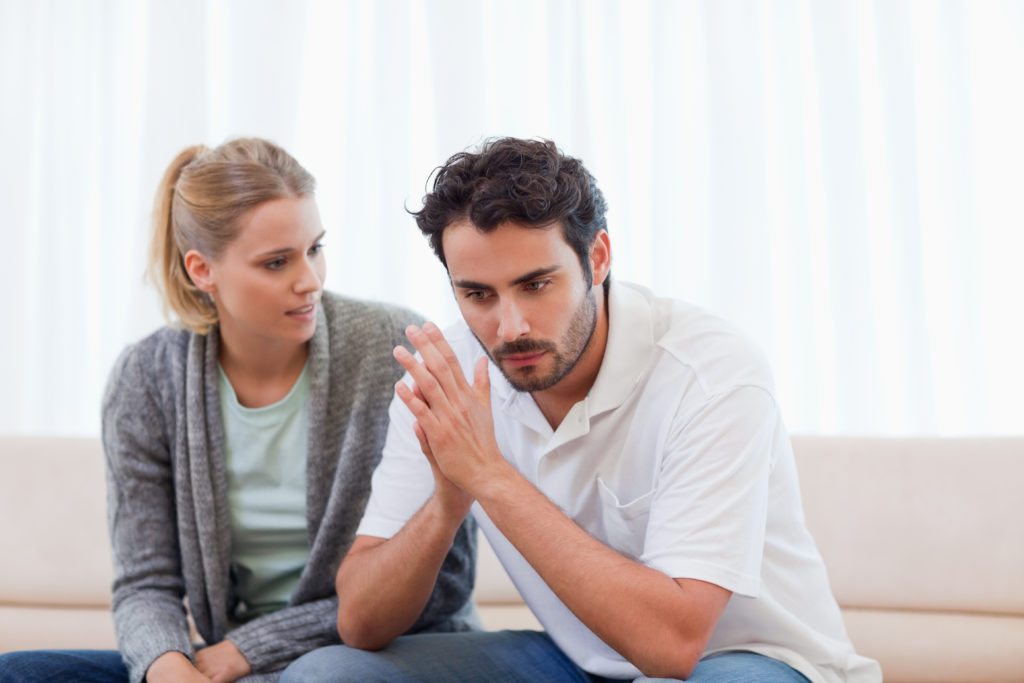How to Cope with Survivor’s Guilt

When you survive a traumatic experience that your family members or friends did not, many people expect you to be relieved. What you feel, instead, is shock, grief, and even guilt. You may even feel responsible for the deaths of the people around you or that there was something more that you could have done to help those other people. These feelings are called survivor’s guilt and they are surprisingly common. Here are some signs you may be suffering from survivor’s guilt and how to cope with it.
Signs of Survivor’s Guilt
It can be difficult to know if what you are feeling is actually survivor’s guilt. While PTSD and survivor’s guilt are often related and may occur in conjunction, they are not the exact same thing. Here’s what you need to know about identifying survivor’s guilt:
Do you wonder why you weren’t hurt?
It’s natural to wonder why you were not hurt or why you survived when the guy standing right next to you did not. If this question plagues you, however, if you find that thinking about this interferes with your normal life, it has strayed out of the realm of normalcy and has become a very real issue.
Do you wonder why you survived?
Just like the previous question, it is natural and normal to consider this question, but if it becomes such a heavy, all-consuming question that it makes your life difficult, you are probably experiencing survivor’s guilt.
What more could I have done?
Many people will feel guilty for being alive while other people died, survivors frequently feel guilty for “not doing enough” to protect the people around them in the height of the event, even if there was nothing more that could have been done to rescue. If you feel guilty about not having protected the people who were injured or killed, even if, in reality, you did all that could reasonably be expected of you, this may be survivor’s guilt.
Why am I not happy to be alive?
Some people may even feel guilty that they are not happier about surviving when other people did not. You may see other people who are in a similar situations who seem to be doing perfectly fine or who, at the very least, seem relieved that they made it out alive when so many others did not. Many survivors feel guilt when they compare themselves to other survivors and start to believe they are not responding “good enough” to their situation. Feeling like you are not being “the right kind of survivor” or not surviving in the right way is a common source of guilt among people who are experiencing survivor’s guilt.
If you are asking yourself one or more of these questions, it is time to start looking for a way to cope with the negative feelings that you are experiencing.
How to Cope with Survivor’s Guilt
If you find yourself asking questions like, “Why wasn’t I hurt?” or “Why did I live while my friends died?” or “What could I have done to save them?” you might be experiencing survivor’s guilt. These are common questions inclusive of the grieving process. For some, the grief is so overwhelming that they begin to consider taking their own life, as if that would somehow settle the cosmic score. Here are some tips for coping with survivor’s guilt:
1. Acknowledge what you are feeling.
The worst thing that you can do is try to bury these feelings or ignore them. Instead, practice self-compassion and understand that you are feeling something that many survivors feel. This will normalize the situation and help you cope better. Remember: You are not alone, even if you feel alone. If you are feeling survivor’s guilt, do not ignore it. Look for the signs and if you are experiencing this type of guilt, acknowledge that you are feeling it.
2. Seek support.
There are many places that you can go for support. You can talk to your family, to your friends, to a support group, or even to a therapist. Sometimes, just saying something out loud can help you work through it. Getting support from someone who knows you or understands how you feel is one of the best ways to deal with this type of guilt. If you are a veteran, there are many support groups for returned military personnel, but if you do not feel comfortable going to one of these groups, you might, instead, seek out a therapist or a counselor who has experience in this field.
3. Give yourself the chance to mourn.
Pretending like nothing has happened or that it does not affect you is not going to make those feelings go away. Instead, it can actually make them worse. There will likely be a ceremony for the person or people who died. Attending that ceremony is a good way to start the mourning process. Actually taking the time to mourn can help you to cope with survivor’s guilt.
4. Do something positive with those feelings.
The desire to have been more useful in the situation can be transformed into doing something positive with yourself in the future. Holding a fundraiser, giving blood, volunteering, or giving a contribution can help you feel like you have done some good for the people who died. Turning negative emotions into positive action is a great way to turn a bad situation into something good.
Survivor’s guilt can be a sign of PTSD. While it is common to mourn for a few weeks, if these feelings continue for more than month or begin to interfere with your ability to perform at your job or interact with others, it might be time to step back and look for a way to remedy these feelings.
If you are looking for counselor in the Philadelphia area, contact Cope Better Therapy Services. This private practice specializes in helping adults work through trauma, grief and survivor’s guilt.
Leave a Reply